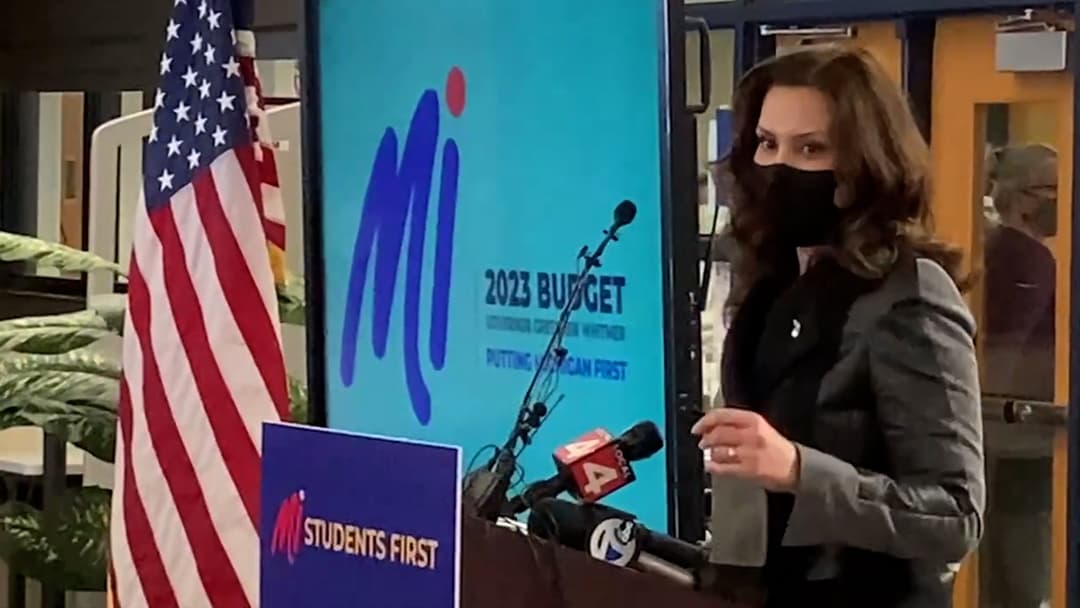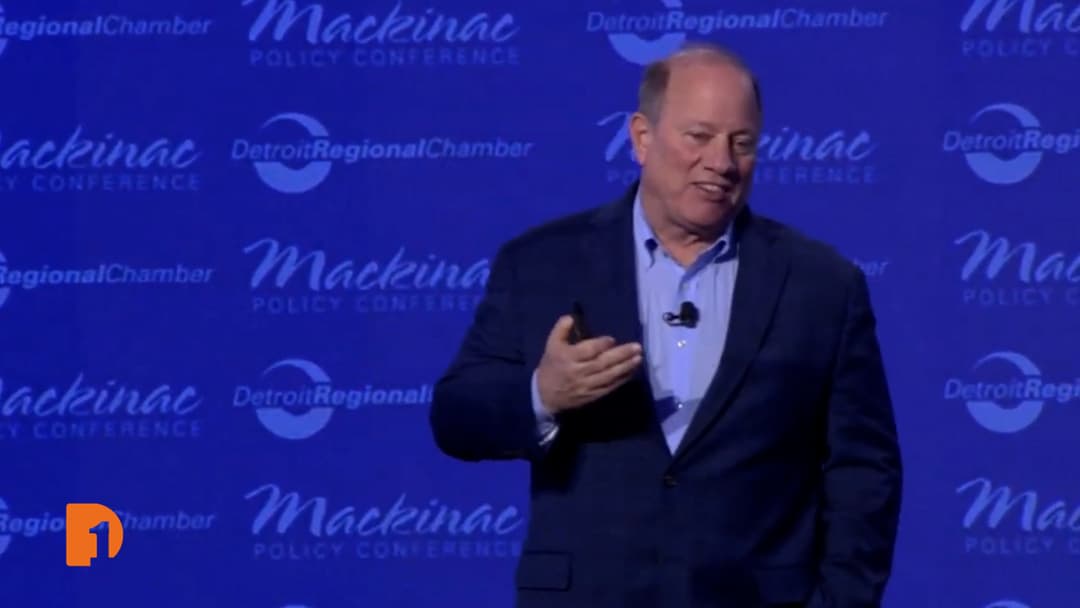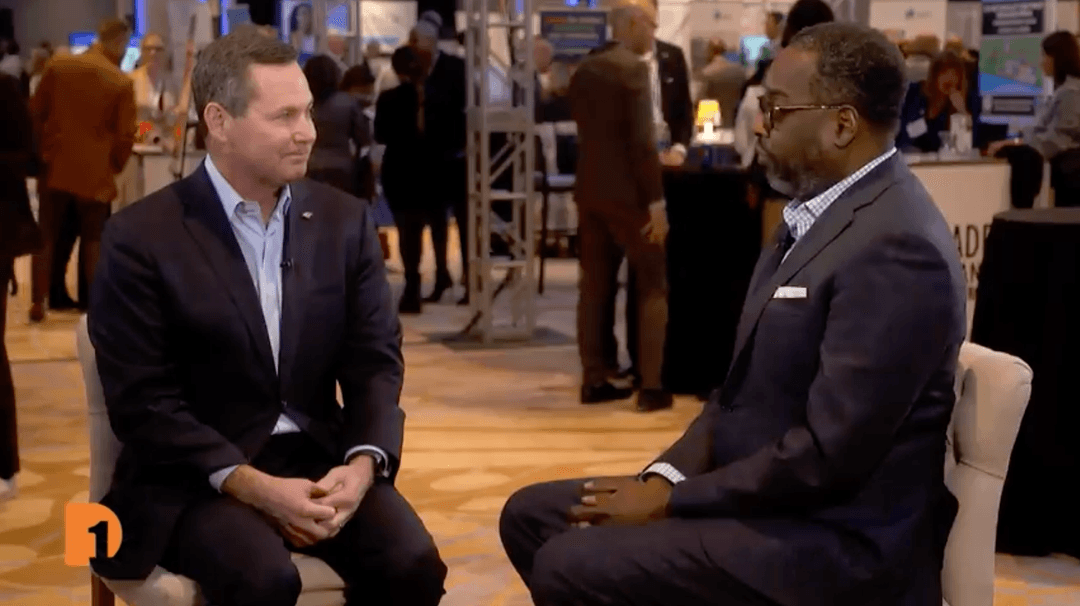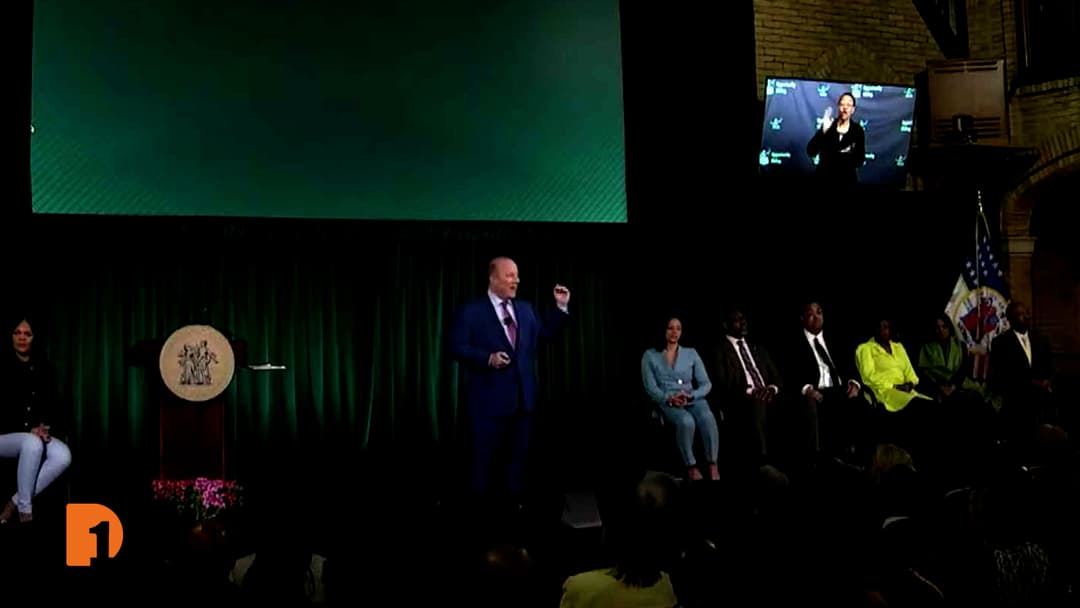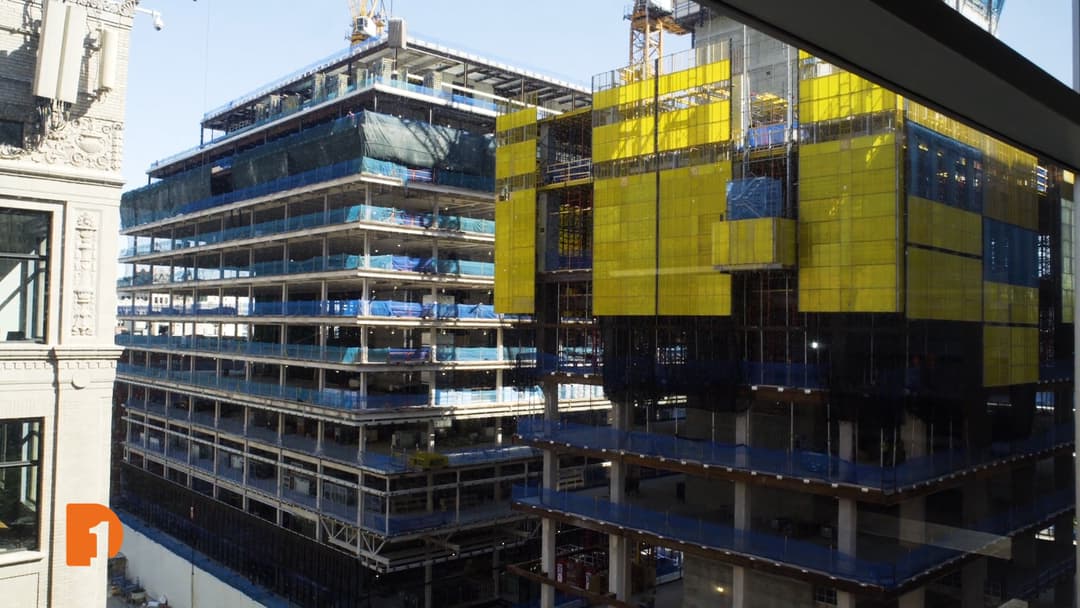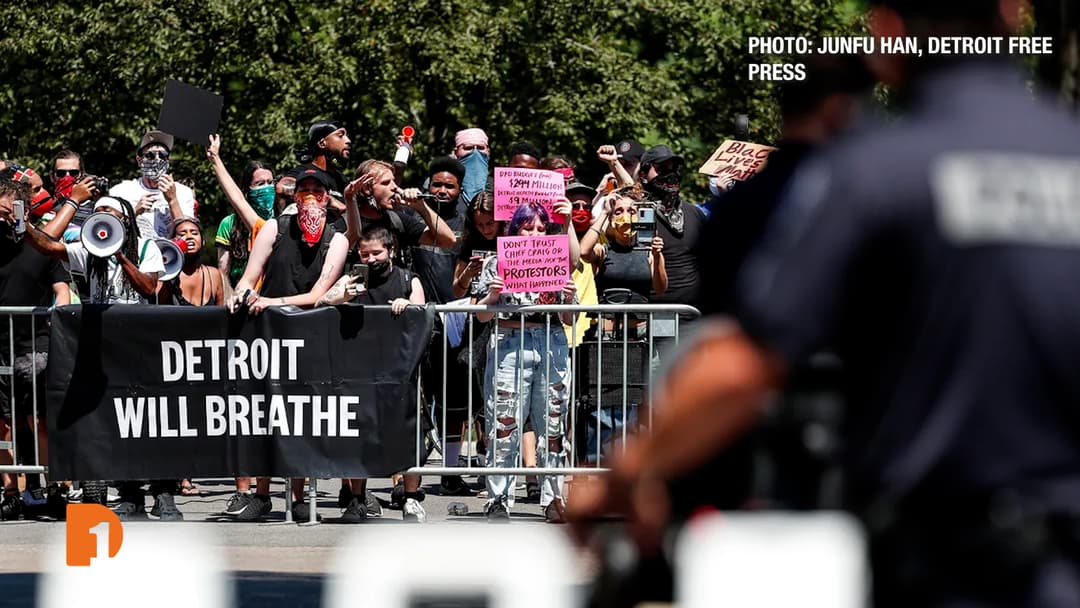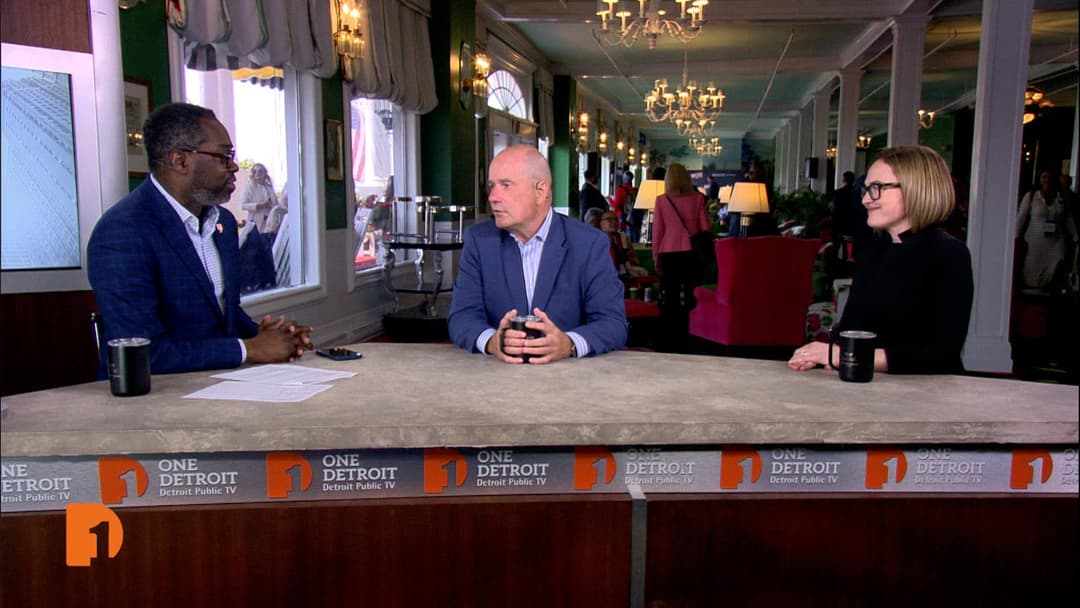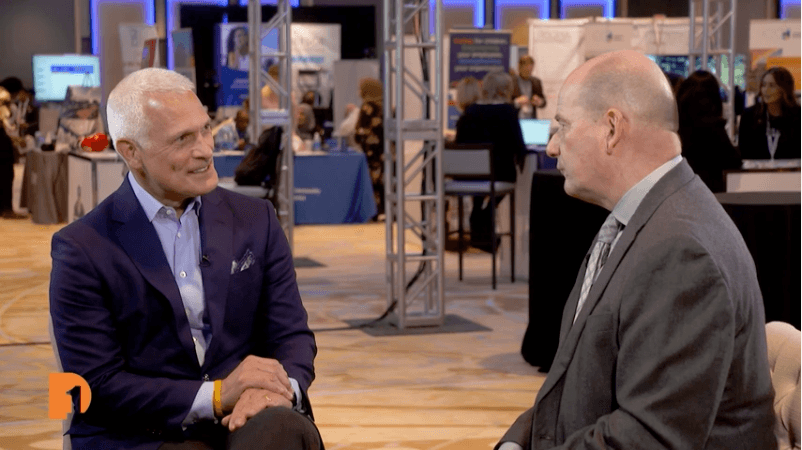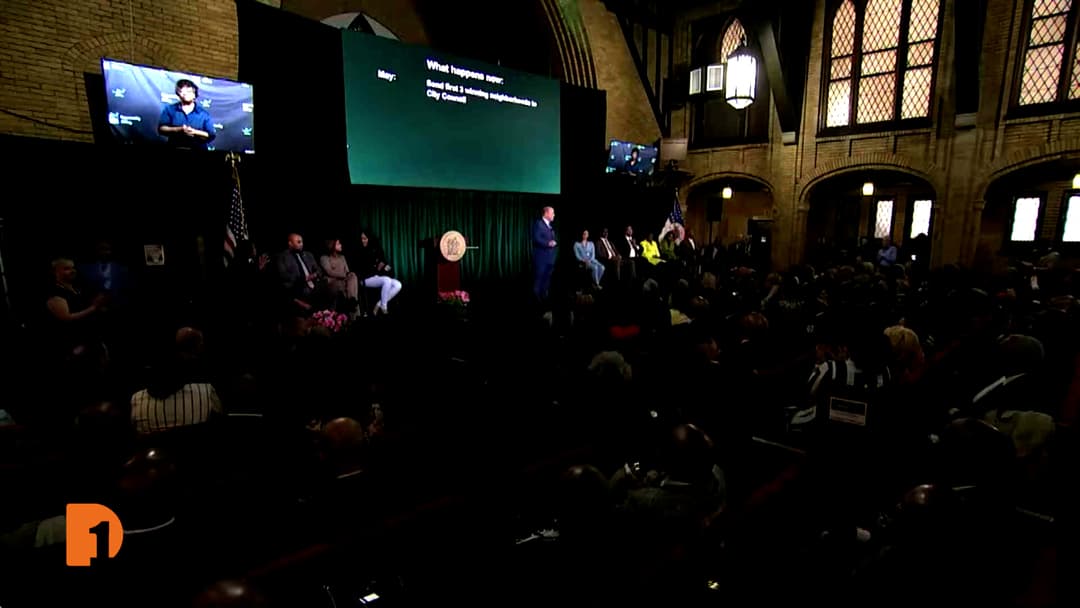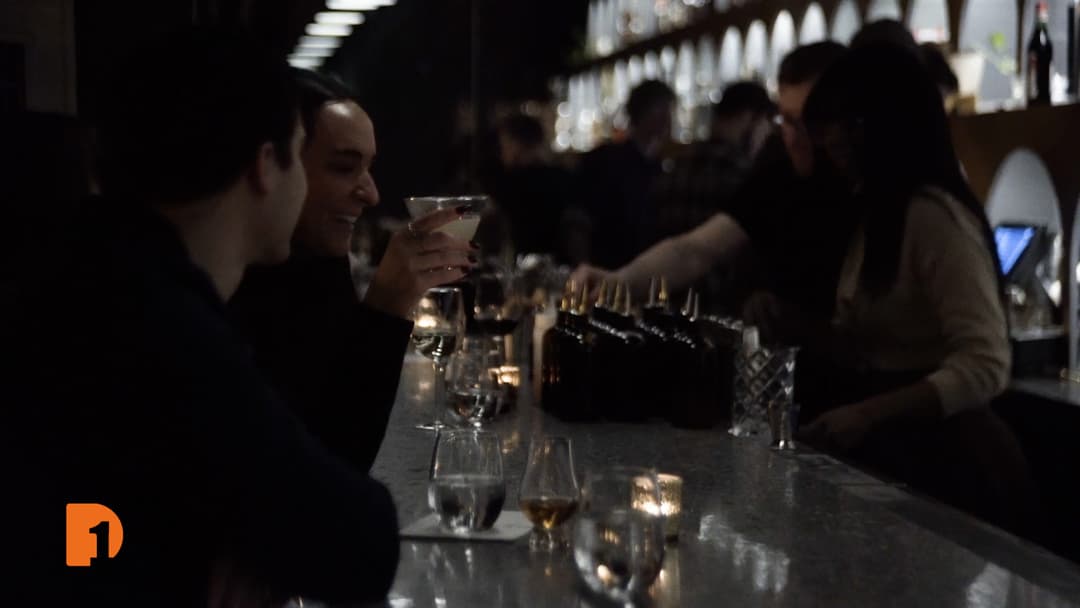Mayor Mike Duggan’s 10th annual State of the City paints optimistic forecast for Detroit’s future
Mar 10, 2023
Detroit Mayor Mike Duggan delivered his 10th annual State of the City speech Tuesday, March 7 at Michigan Central Station, the future site of Ford’s new electric vehicle campus. Duggan took the podium with an optimistic outlook for the future of Detroit, highlighting the city’s turnaround in vacant housing and homeowners as well as ongoing efforts to clean up and restore blighted neighborhood communities.
RELATED: Detroit Mayor Mike Duggan outlines five-year, $2.45 billion capital plan for the city
His speech celebrated historic investments happening around the city, like the Joe Louis Greenway, Richard Hosey’s investment in the Fisher Body Plant, and automotive investments to build and support an all-electric future. Duggan also spoke about a new community violence intervention program, ShotStoppers, unemployment rates in the city, working with returning citizens, and the importance of tax abatements to incentivize developments in the city.
One Detroit contributors Stephen Henderson, host of American Black Journal, and Nolan Finley, editorial page editor at the Detroit News, sat down to discuss the focal points of the mayor’s speech. They talk about Duggan’s push for community buy-in on tax abatements, what he plans to do with the city’s American Rescue Plan Act funds, and the efficacy of how ShotStoppers might work to reduce community violence.
Transcript:
Mayor Mike Duggan, City of Detroit: And here’s what Coleman Young said in 1981. I make no apologies for tax abatements. The 116 companies that have received abatements have invested nearly $500 million of their own money in Detroit and have even greater importance, I believe, are the 3,000 new jobs we brought to Detroit.
40 years ago. Coleman Young understood that when you have a good-paying company with good-paying jobs and benefits, every city and state wants them. This is hand-to-hand combat to get these companies into Detroit so that our residents can get them. And nothing has changed today.
Nolan Finley, Host, American Black Journal: The thing I found interesting about this speech was how hard Duggan worked to sell this idea that tax abatements for big billion-dollar projects are necessary. And in going back and invoking Coleman Young, quoting Coleman Young and noting that Coleman Young did these tax abatements back in the seventies and eighties, I mean, he seemed to be really concerned about community pushback to the tax abatements that this, in particular, the district Detroit developers are going to get.
Stephen Henderson, Host American Black Journal: Yeah, I mean, there are a lot of questions about it. And my big question that no one seems to address or be able to address is, look, when we were sold on, you know, the first round of tax breaks for kind of the modern redevelopment of downtown Detroit, if you think back to the stadiums, right?
Nolan Finley: Yeah.
Stephen Henderson: Late 90s, early 2000s, one of the lines that they used was this would make the market more rational and more investor-friendly so that we would over time need less of this in order to attract people to develop things. But here we are 23 years later and the Elegies and Stephen Ross have asked for, by my calculations, in raw numbers, the largest subsidy that we’ve ever given anyone. And it equals half the development costs.
Things seem to be getting worse on that front, not better. And so one of the questions is, is this just something that developers have gotten used to and have decided they want as part of these projects? Or is it really something that we need? The mayor saying we have to have these things because of high taxes. I guess I’m not sold anymore if that’s the case?
Nolan Finley: Well, I do believe that Detroit is not yet market rate for investors. I don’t know if it’ll ever be market rate for investors, but I also believe that as long as these breaks, these abatements are available, people are going to go for them. I mean, it’s become part of the business plan and you see it in every level.
Look, I mean, the state of Michigan paid $700,000 per job for that Ford battery development out in Marshall. So, I mean, it’s becoming a way business is done today. Now, the mayor makes the point that it’s not a subsidy, it’s not a tax break. We’re not giving them anything, because if they did build this, we wouldn’t get any dollars in taxes off of it. So we’re just getting less dollars in taxes than we might expect. I don’t know if that’s an argument that washes. But he clearly was concerned about getting community buy into this.
Stephen Henderson: Yeah. You know, I also feel like some of the language here is deceptive. This idea that we have moved from subsidies to abatements, no question. Back when Coleman was mayor, we were giving subsidies, writing checks to be able to do these kind of things. We don’t do that anymore. It is a tax abatement. But the idea that there’s no cost associated with that is not right. It does give us less tax revenue over time. That tax revenue would be used to help support the services needed for the added development.
If you think about all the things downtown that require city services and are not doing their share of paying for them, also, the people who use those services are not doing their fair share of paying for. If they don’t live in the city, they don’t pay any taxes. There are no fees, there are no excise taxes. There are not the things that other cities around the country use to make these things worthwhile for the citizens. And we do need to start thinking about how we get there in Detroit.
Nolan Finley: The other piece that intrigued me Steve was what he’s doing with this big tranche of Biden bucks he has. The ARPA money and the COVID money and the community partnerships he’s trying to build for things like, you know, fighting crime and and building job skills. Getting affordable housing.
But the crime one is particularly intriguing. Engaging community groups to bid on certain areas got $10 million pool here. You can get a grant for $750,000. Pick a neighborhood and see if you can do things to address the root cause of violence in this community. If it works, I mean, it’ll be brilliant. And there is reason to hope that it might work. Nothing out there..
Stephen Henderson: Yeah.
Nolan Finley: You know, it’s been tried in other places with mixed results. But, I mean, this is a program it’s going to take a lot of accountability and a lot of oversight. When you start throwing that kind of money out there and saying, hey, come up with an idea for fighting violence.
Stephen Henderson: Yeah, I mean, the metrics are the key here, right? How do you decide that what somebody or a group is doing is making you someplace safer? How do we define safer? How do we limit the threat of vigilantism when you do this kind of thing?
Not that people… That’s what people’s proclivity is, but it’s a possibility. Managing these kinds of things and deciding when they work is going to be the hardest part of it. And you’re right. If they can pull that off and get some things that actually have success, it’ll be it’ll be great. But you do worry about that approach and how we make sure that it’s aimed at an actual safety.
Stay Connected:
Subscribe to One Detroit’s YouTube Channel & Don’t miss One Detroit Mondays and Thursdays at 7:30 p.m. on Detroit PBS, WTVS-Channel 56.
Catch the daily conversations on our website, Facebook, Twitter @DPTVOneDetroit, and Instagram @One.Detroit
View Past Episodes >
Watch One Detroit every Monday and Thursday at 7:30 p.m. ET on Detroit Public TV on Detroit Public TV, WTVS-Channel 56.
Stay Connected
Subscribe to One Detroit’s YouTube Channel and don’t miss One Detroit on Thursdays at 7:30 p.m. and Sundays at 9 a.m. on Detroit PBS, WTVS-Channel 56.
Catch the daily conversations on our website, Facebook, Twitter @OneDetroit_PBS, and Instagram @One.Detroit
Related Posts
Leave a Reply
Your email address will not be published. Required fields are marked*

